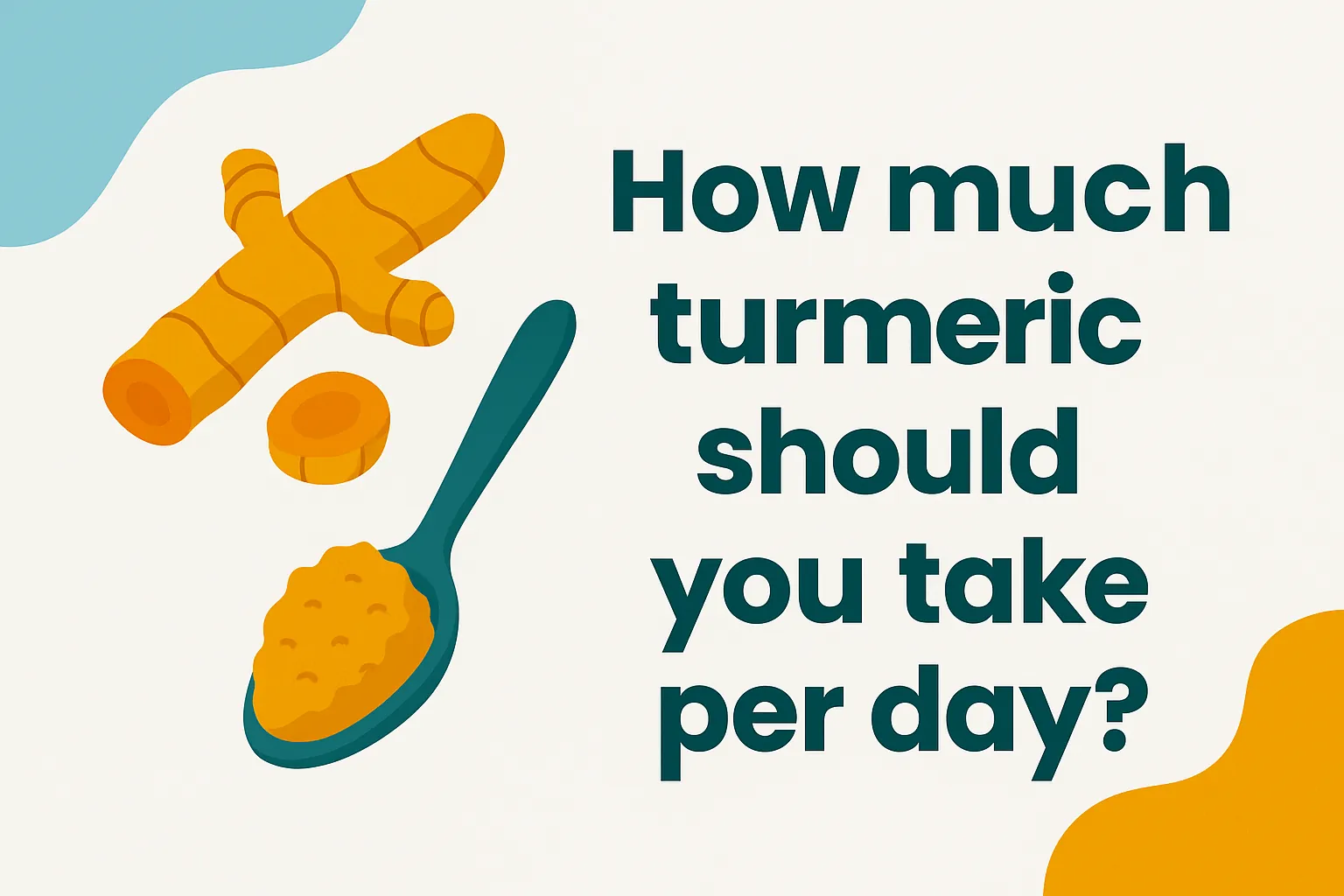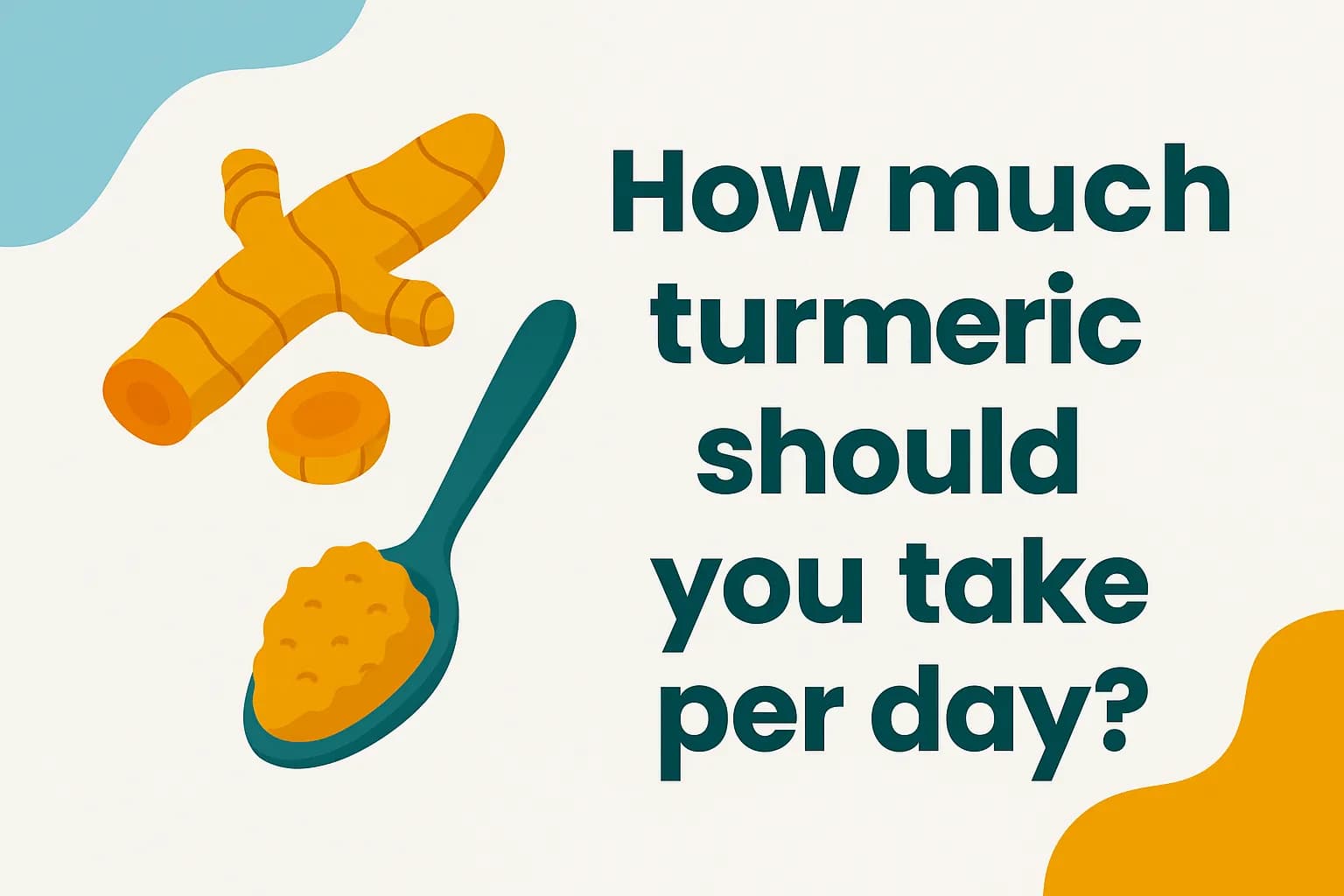How much turmeric should you take per day?

Turmeric, a spice from the Curcuma longa root, is prized for its anti-inflammatory and mood‑boosting properties. It’s available in foods, drinks, and supplements. To benefit from turmeric safely, it’s important to choose the right dose.
Effective dose of curcumin
The Joint FAO/WHO Expert Committee on Food Additives recommends up to 3 mg of curcumin per kilogram of body weight per day. Most supplements list turmeric rather than curcumin content. Clinical trials have used 500 mg to 2,000 mg of turmeric daily. Doses up to 8,000 mg per day are generally considered safe, but higher amounts may increase side effects.
Your ideal dose depends on your health status, conditions, and reasons for taking it. Consult a healthcare professional before starting turmeric or curcumin supplements.
Health benefits
- Reduces inflammation in arthritis and ulcerative colitis
- Neutralizes free radicals, protecting against heart disease and cancer
- Supports brain function and may help prevent Alzheimer’s disease
- Improves blood vessel function and lowers cholesterol
- Slows growth of certain cancer cells, especially in the digestive tract
- Eases joint pain in osteoarthritis
- Aids digestion and reduces bloating
- Improves skin conditions like acne and psoriasis
- May have antidepressant effects by boosting neurotransmitters
- Strengthens immune response
Enhance absorption by taking turmeric with black pepper (piperine) or dietary fats.
Side effects
- Stomach upset, nausea, diarrhea, or acid reflux
- Increased bleeding risk with anticoagulants
- Caution in gallbladder disease and kidney stones
- Reduced iron absorption
- Rare allergic reactions (rash, itching, breathing difficulty)
- Rare liver toxicity with very high doses
- Hypoglycemia when combined with diabetes medications
- Hormonal effects in estrogen-sensitive conditions
Shop Medications
Medication interactions
- Blood thinners (warfarin, aspirin, clopidogrel): increased bleeding
- Acid reducers (omeprazole, ranitidine): possible interference
- Diabetes drugs: risk of low blood sugar
Who should avoid turmeric?
Avoid or use caution if you:
- Are pregnant or breastfeeding
- Have gallbladder or kidney problems
- Have bleeding disorders or take blood thinners
- Have diabetes or iron deficiency
How to take turmeric
- Topically for skin conditions
- In foods and drinks (curry, golden milk) with fats or black pepper
- Supplements standardized for curcumin with enhanced absorption
Sources
- Stohs SJ, Chen O, Ray SD, et al. Highly Bioavailable Forms of Curcumin: A Systematic Review. Molecules. 2020;25(6):1397.
- El‑Saadony MT, et al. Impacts of turmeric and curcumin on human health: A comprehensive review. Frontiers in Nutrition.
- Akbari M, et al. Curcumin and weight loss in metabolic syndrome: A meta-analysis. 2019.
- Peterson CT, Rodionov DA, Iablokov SN, et al. Prebiotic potential of culinary spices. Evidence‑Based Complementary and Alternative Medicine. 2019.
- Tayyem RF, et al. Curcumin content of turmeric and curry powders. Nutrition and Cancer. 2006.
- Lopresti AL, et al. Effects of a curcumin extract on osteoarthritis knee pain. Nutrients. 2022.
- Ahmad RS, et al. Biochemistry, safety, and clinical applications of turmeric: A mechanistic review. 2020.





